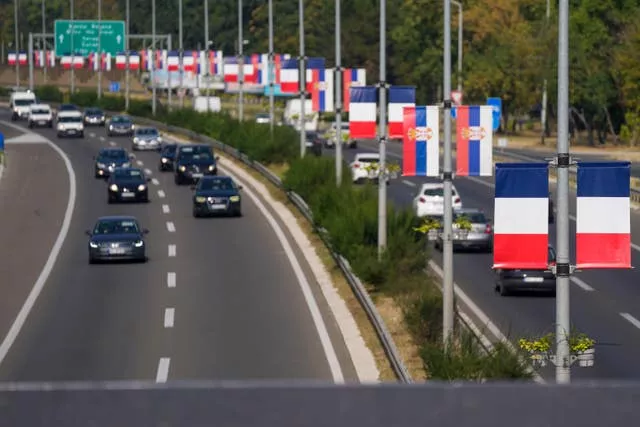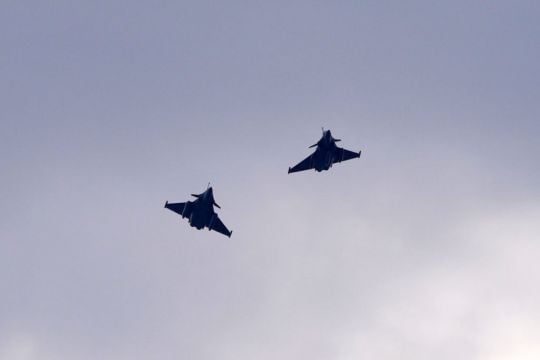Serbian President Aleksandar Vucic has announced a three billion dollar deal to buy 12 French warplanes, in a move that shifts his country away from its dependence on Russian arms.
The announcement about the Rafale multi-purpose fighter jets was made during a joint news conference in Belgrade with French President Emmanuel Macron, who was on a two-day visit to Serbia.
Mr Macron called it a “historic and important” deal and praised Serbia’s “strategic courage. It’s a true demonstration of European spirit”.

An official in Mr Macron’s office, who was not authorised to be identified according to French presidential policy, said the warplane deal was part of larger strategy of “bringing Serbia closer to the EU”.
Serbia needs to upgrade its fleet and the Rafale is a ″strategic choice″ for Belgrade, which could choose to rely only on Russian equipment instead, the official said.
Serbia had been considering the purchase of the new Rafale jets for more than two years, since neighbouring Balkan rival Croatia purchased 12 used fighter jets of the same type for about one billion euros (£841.1 million).
The acquisition allows Serbia to modernise its air force, which consists mainly of Soviet-made MiG-29 fighters and aging Yugoslav combat aircraft.
Russia has been a traditional supplier of military aircraft, including combat helicopters, to Serbia, which has refused to join international sanctions against Moscow for its invasion of Ukraine.
Selling Rafales to Russian ally Serbia, which has occasionally expressed an aggressive stance toward its Balkan neighbours, has raised some concerns, one of which is how France plans to prevent sophisticated Rafale technology from being shared with Russia.
Asked if there would be a clause restricting the use of the Rafales, the French official said ″in any contract there are clauses that set a framework for the use of such material”.
Serbia is formally seeking European Union membership, but under Mr Vucic’s increasingly autocratic rule it has made little progress in the fields of rule of law and democratic reforms, which are the main preconditions for membership in the 27-nation bloc.







